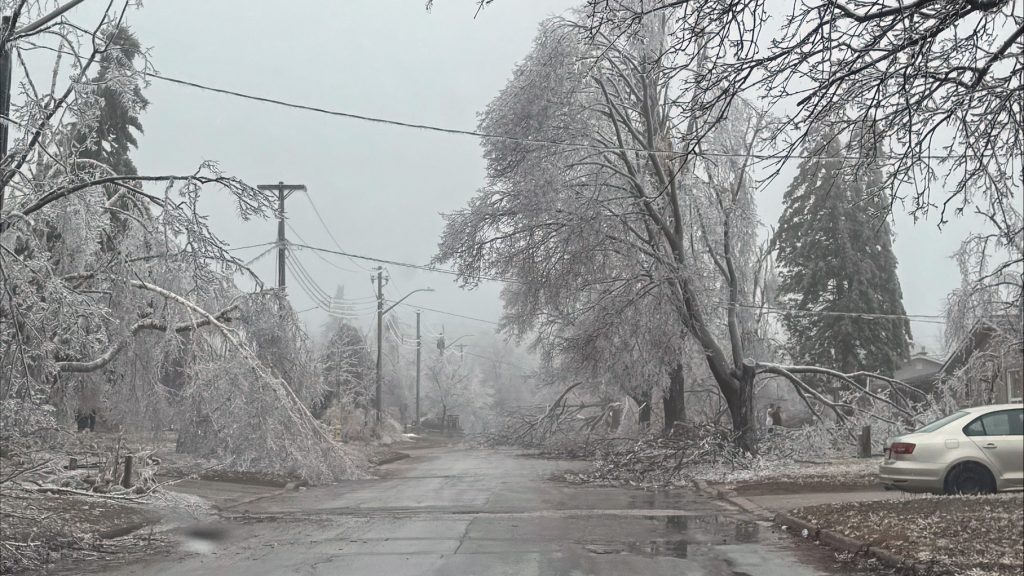Canada’s latest COVID-19 travel rules explained

Posted December 6, 2021 12:32 pm.
Last Updated February 16, 2022 4:20 pm.
UPDATE (Feb. 16, 2022): The story below was written to reflect the rules at the time of original publication. For the latest story on entry requirements, click here.
With the emergence of the COVID-19 Omicron variant in recent weeks, there have been several changes to travel-related restrictions in Canada and across the world.
However, the latest rules imposed by the federal government have resulted in some travellers reporting confusion when it comes to boarding a flight or driving across a land port of entry.
Here are the general restrictions in place as of Dec. 6, subject to change in the future:
Travelling within Canada
For all those who are 12 years and four months or older, they must be fully vaccinated in order to board domestic and international flights leaving from most passenger airports (click here for the list of airports). Fully vaccinated refers to 14 days after receiving two doses of Pfizer-BioNTech, Moderna, Oxford-AstraZeneca, Sinopharm, Sinovac and Covaxin or a single dose of Johnson and Johnson. The only exemptions are for medical evacuation flights and private flights that do not need access to airport terminals where there are vaccination requirements.
Proof of full vaccination is also needed to board Via Rail and Rocky Mountaineer trains.
Travelling to and from the United States
If you’re travelling by land or water, proof of full vaccination is needed to enter the United States but proof of a negative test isn’t needed. However, if you’re flying into the country and aren’t a U.S. citizen, you will need to show proof of vaccination or proof of having recovered from COVID-19 in the past 90 days. Proof of a negative antigen test taken within one calendar day of arrival will also be needed.
Under current Government of Canada regulations, fully vaccinated travellers 12 and older returning to the country generally need to show proof of a negative molecular test taken within 72 hours of the scheduled flight departure time or scheduled arrival time at a land border to avoid quarantine and follow-up testing. Proof of full vaccination will also need to be uploaded through the ArriveCAN app. Despite these requirements, there might be a random test required on arrival.
However, for Canadian citizens, permanent residents and individuals registered under the Indian Act, trips less than 72 hours will be exempt from molecular test requirements. In an announcement on Nov. 19, officials said these criteria will be re-evaluated at a future time and could be extended to other groups. However, proof of vaccination, a quarantine plan and other declarations will still need to be inputted into the ArriveCAN app before arriving at a border crossing.
RELATED: Foreign air travellers entering U.S. required to get COVID test the day before
While Canadian residents are eligible to enter the country even if they aren’t fully vaccinated, they need to complete a mandatory quarantine and a follow-up test on day eight of entry in the absence of proof of full vaccination or if they have symptoms consistent with COVID-19.
When it comes to getting antigen tests in Ontario, certain pharmacies and private clinics offer tests for travel purposes for a fee.
Click here for a list of pharmacies in Ontario to contact about booking tests.
Click here for the latest health-related recommendations for travellers by the Centers for Disease Control and Prevention.
To access the U.S. Department of Health and Human Services list of testing options for your return into Canada, click here for a breakdown by state by changing the menu option at the top.
Travelling to and from other international destinations
Under current Government of Canada regulations, fully vaccinated travellers 12 and older returning to the country generally need to show proof of a negative molecular test taken within 72 hours of the scheduled flight departure time or scheduled arrival time at a land border to avoid quarantine and follow-up testing. Proof of full vaccination will also need to be uploaded through the ArriveCAN app. Despite these requirements, there might be a random test required on arrival.
For Canadian citizens, permanent residents and individuals registered under the Indian Act, trips less than 72 hours will be exempt from molecular test requirements.
With varying COVID-19-related entry requirements across the world, make sure you double-check the latest rules for the country you’re visiting. Click here to access the Toronto Pearson International Airport’s COVID-19 information page where all destinations are listed (scroll down to travel restrictions and visa requirements).
For the latest Government of Canada travel restrictions including additional requirements relating to the Omicron variant for anyone returning from several African countries, click here.








